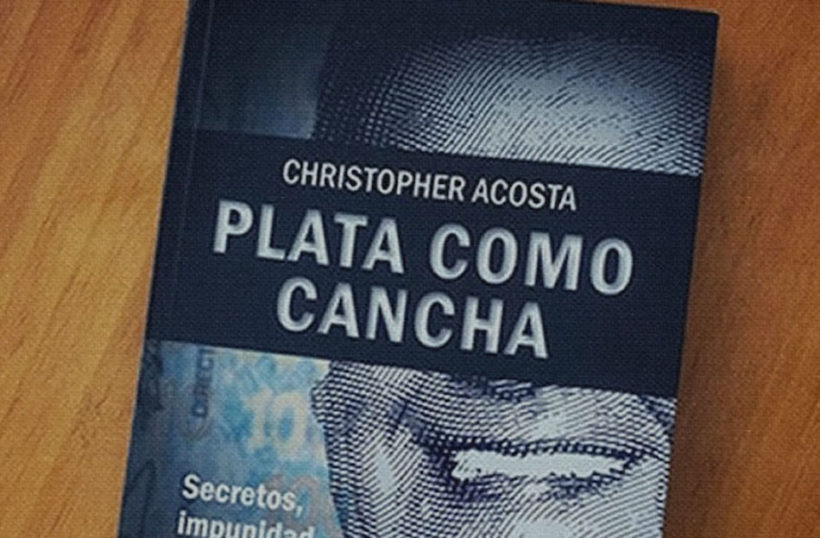Judge Raúl Jesús Vega, of the 30th Criminal Court of the Lima Superior Court of Justice, sentenced Christopher Acosta, author of the book “Plata como cancha”, to a two-year suspended prison sentence for defamation and ordered him to pay civil damages of 400,000 soles, following a complaint filed by the offended party, Peruvian businessman and politician César Acuña Peralta.
This case raises the issue of freedom of the press and the practice of journalism. The judge considered 36 sentences about Acuña included in “Plata como cancha” to be defamatory because the author did not corroborate the testimonies and did not provide proof of his claims. Following the ruling – which orders the payment of civil damages by Jerónimo Pimentel and the publishing house Penguin Random House – many journalists immediately expressed that it is an “attack on the free exercise of journalism”.
In this regard, lawyer James Quiroz states that “journalists often lack elementary legal training on fundamental rights involved in the exercise of their function, such as the constitutional content of the right to honour or the presumption of innocence; what is worse, they do not show a predisposition to know what their legal limits are in their investigative work”.
Quiroz is concerned about journalists because it seems that the violation of certain fundamental rights such as the right to privacy, the right to privacy, the presumption of innocence or the right to honour, under the pretext of exercising their right to information, has become normalised.
To illustrate his analysis in a didactic way, he gives these examples of statements regarding someone’s moral and professional performance, without verifying or corroborating the veracity of the statement: “Juan Pérez is a child rapist, so said X; Juan Pérez has stolen money when he was a manager, said Y in an interview, etc.”. And he asks: “Do you consider that these phrases, even if they were quotes from third parties taken from a newspaper, would harm your reputation and honour?
For his part, journalist Manuel Rodríguez Romero – former dean of the College of Journalists of Peru – La Libertad branch proposes that the association and, above all, the schools or faculties of communication sciences at universities organise conferences and debates on freedom of expression and the right to honour. “With the debates, journalists will not only clear up doubts and clarify ideas about these rights enshrined in the Political Constitution of Peru and the Charter of the United Nations, which states that everyone has the right to disseminate information, to have freedom of the press and expression and to handle data, as long as it does not unduly affect the reputation of individuals”.
It should be noted that in the article “Freedom of expression versus apology for terrorism” I write about freedom of the press and freedom of expression in Peru: “The Peruvian Press Council (CPP) asked President Pedro Castillo Terrones for more transparency and better communication with the press during a meeting at the Government Palace. We emphasise the need to respect and promote freedom of expression and freedom of the press for the benefit of Peruvian democracy, in view of recent attacks on journalists, the limitations on their daily work and the violation of the Chapultepec and Salta Declarations”.
Finally, analyst Juan Sheput, in an interview with journalist Luis Carbajal on Stereo Diplomat Radio, referred to the front-page headlines in El Comercio and La República, regarding the sentencing of journalist Acosta. “Did they protest when Pedro Castillo sent a letter to the MTC at the end of July, before taking office, asking them to take away Willax’s licence and to prosecute Beto Ortiz, Phillip Butters and Milagros Leyva? They did not protest, that is, when it comes to their friends, they do protest”. Finally, he pointed out that all people who consider that their honour has been damaged have the right to go to court.






